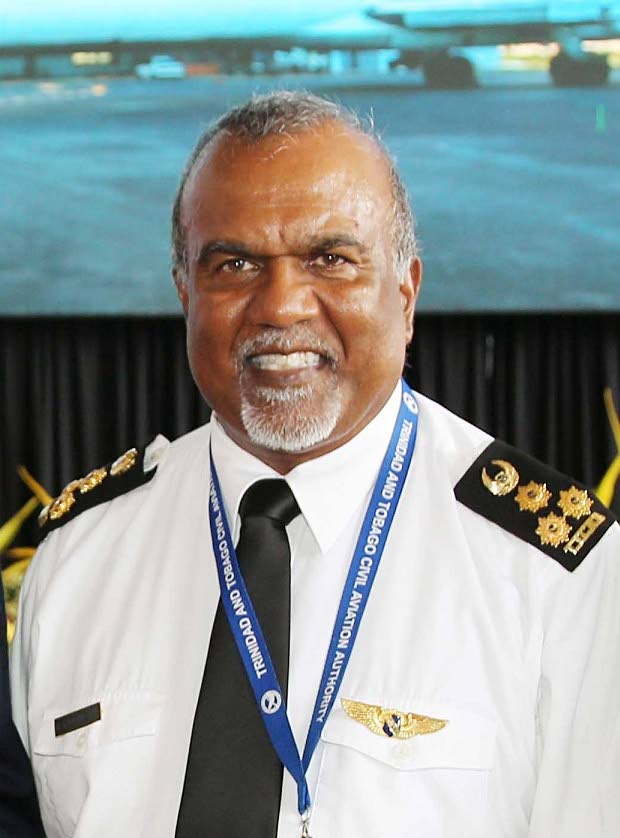Flight attendant acted in interest of safety – Expert weighs in on autistic child on aircraft

TWO experts on Monday gave Newsday varying views on a father's complaint that during a flight to Trinidad and Tobago, his autistic child had to stay strapped into her own seat instead of being allowed the comfort of sitting with her grandmother.
The incident was widely reported over the weekend on social media.
Ramesh Lutchmedial, retired director general of the TT Civil Aviation Authority (CAA) and Newsday columnist, told Newsday the primary responsibility of an aircraft's cabin crew was the safety of passengers. This included briefing them about emergency procedures, including how to put on their life jackets and seatbelts, and the location of exit doors.
"The law says every person over the age of two must occupy their own seat," he said.
"Prior to the take-off of the aircraft, the senior flight attendant has to inform the captain that the cabin is safe for take-off because all the passengers are seated and their seat belts are fastened.
"Likewise, when it is coming to landing and they put on their seatbelt sign, the captain would make an announcement and say, 'Kindly fasten your seatbelts.'
"Then you would make your physical inspection and, in fact, they do it twice to make sure all passengers are seated."
The air hostess would then inform the captain the cabin was safe and secure for landing, Lutchmedial said.
He said while the autistic child in the current case wanted to sit with her grandmother, that would be in breach of the safety regulations.
"According to the Civil Aviation Act, it is an offence to disobey the instructions of a cabin crew member. Likewise, to be abusive or rude is also an offence."
Lutchmedial said the child's father allegedly used curse words at staff, and that was an offence.
"Let's say the flight attendant ignored the rule and allowed the child to sit on the grandmother's lap for the landing and something untoward happened and the child bounced around the cabin and became seriously injured. Who's going to assume responsibility?
"Suppose, on coming to land, the aircraft encounters some turbulence and the child is thrown around the cabin. Who is going to take responsibility?"
Lutchmedial said in his professional opinion, the flight attendant had been correct in her conduct, though the child's father had alleged otherwise.
"The flight attendant has to be very assertive, especially when there is resistance to comply with a valid instruction.
"CAL focuses a lot on customer-service training, especially with its flight attendants. In my professional opinion, the flight attendant acted very professionally, very appropriately in the interest of safety.
"Look at it the other way: If she ignored the fact of this child without a seatbelt fastened and something happened and the child is rolling about and gets injured, they would want to sue the airline and say, 'You were supposed to insist.' That has happened before in other jurisdictions."
Noting comments on social media sympathetic to the child's parents, he said the scene did not unroll in a maxi taxi or a car but in an aircraft in the air.
Lutchmedial said the Civil Aviation Act (section 60) outlaws disruptive behaviour on board an aircraft.
This says a passenger must not "interfere with a crew member or passenger, do any act that threatens the safety of the aircraft or of persons on board the aircraft, use abusive language or insulting words towards a crew member or passenger, or intentionally interfere with the performance of duty by a crew member."
The act has 1,999 pages.
Historian and Newsday columnist Dr Radica Mahase, Support Autism T&T founder/director, shared her insights as the aunt of an autistic 19-year-old.
"Autism is a spectrum. No two children with autism are the same."
She said each child's needs are different, including regarding travel.
"It is very important for parents to know their child and how to prepare him/her for travelling. Most will do that already."
She said, for example, an autistic child averse to loud noise could be given noise-cancelling headphones by his/her parents. A child who dislikes enclosed spaces could be told by the parents beforehand, using visuals, that they are about to go from one place to another.
"The whole experience starts with preparation before you even get on a plane.
"I will reach out to the airlines to let them know I am travelling with a special-needs child who is autistic on the low end of the spectrum and ask them, 'What do you have in place to help?'"
Mahase said while every passenger must have a seatbelt, she was unsure of any special consideration for special needs that CAL might have in place.
Without singling out any airline, she said often when travelling, the attitudes of some airline staff could be exasperating.
"It can make the travel experience very traumatic for the child."
Mahase advised that it was very important for parents to reach out to the airline.
She added,"If the child doesn't like crowds and noise, consider travelling in the off-peak season."
Mahase said there were rules in place for air travel, but also said CAL should train its staff in matters such as autism.
"I wish they would reach out to us. We would train their staff or sensitise them.
"We don't expect CAL staff to know everything, but at the same time, these are the kinds of experiences that should encourage them to put things in place for all passengers – if it's a passenger with special needs, an aged person, a baby – so passengers will have the best-quality service possible."


Comments
"Flight attendant acted in interest of safety – Expert weighs in on autistic child on aircraft"